
Xbox Game Pass continues to be a revelation—and I say that as somebody who doesn’t even currently subscribe to it. The top six games on this list don’t just represent the six best games released for either the Xbox Series X|S or Xbox One this year; they’re the six best games of the year, period, released for any platforms, and most of them are currently playable on Game Pass (as well as certain other systems). More than perhaps any other year 2022 underscored how ridiculous the false dichotomy between “indie” and “AAA” games is at this point, and to Microsoft’s credit many of the year’s best smaller budget games were playable on the Xbox on release day. There’s no clear winner among any of the current consoles at this point; they all have their advantages and weaknesses, and they all fill different niches. Xbox Game Pass isn’t perfect, and won’t be an especially practical option for those who heavily value Nintendo or PlayStation exclusives, but in terms of shear value, there’s nothing else like it in gaming today. The number of games in the list below that are on Game Pass right now is proof. If you’re looking for something great to play on your Xbox, whether you subscribe to Game Pass or not, these 10 games are the best to hit the system in 2022.
10. Soul Hackers 2
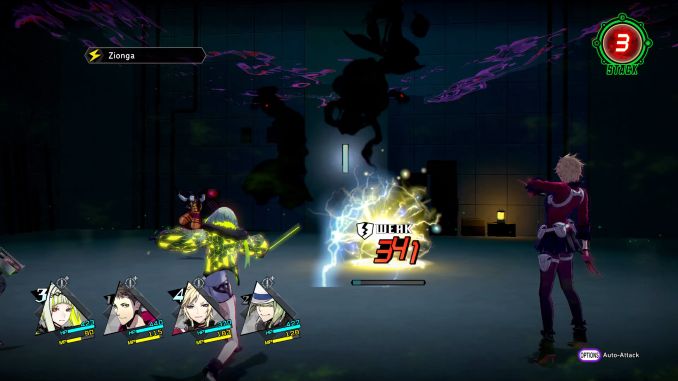
Even with all the side quests and demon grinding I did, Soul Hackers 2 was only 32 hours. A 30 to 40 hour JRPG is almost unheard of at this point. And it’s breathtaking. Sure, there’s little room for walls of explanation and expository dialogue. There’s no hidden lore fragments to collect. The character side quests are straightforward to resolve and clearly telegraphed. Soul Hackers 2 tells a good anime story about rivals to friends, AI learning about humanity, and dealing with trauma, and wraps it up in some of the best dungeon crawling Atlus has put together in over a decade. It’s condensed and digestible, perfect for a modern gamer who has way too many things in her backlog. It’s rare that I review a game and want to go back to it. Even if I love it at the time, I’m usually so wiped from the process that I need to delete it from my PlayStation and just not think about it for a good while. Soul Hackers 2 is graceful and breezy enough, while still being a meaty monster-collecting dungeon crawler, that I’ve been thinking about my return to it the entire time I wrote my review.—Dia Lacina
9. Cult of the Lamb
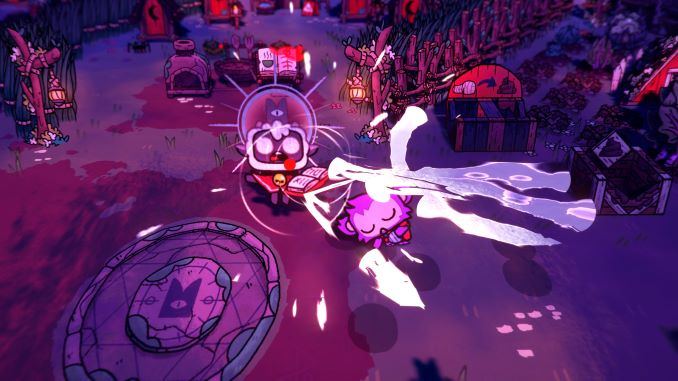
From the very moment Cult of the Lamb begins, players embark on a rollicking, deceptively cute, but ultimately sinister journey through the lands of the Old Faith, and it never lets up. Within seconds of gaining control of the game, the player is executed for being a potential vessel for The One Who Waits, a god who’s been bound by chains. This fallen god saves the player before charging them, a literal sacrificial lamb, with taking up a crown and restoring them to power. From there, players engage in a lot of frankly dubious behavior, indoctrinating dissidents of the Old Faith into a cult and deciding how best to exploit them.
Cult of the Lamb’s greatest strength might be its honesty. Action games are about this absolute physical dominance over other things and people around you, and management sims have always been about pulling on threads and watching systems big and small do your bidding. In a sense, Cult of the Lamb is this wholly self-aware marriage of two distinct, but intrinsically tied, genres about the order of things, and just immediately inserts you at the top of that hierarchy, laying it all bare. It drops all pretenses and weaves conquest and violence of various forms (spiritual, physical, and systemic) into its systems and simple story very satisfyingly. At the end of the day, your cult leader is little but an avatar for destruction masquerading as a hero. How much more of a videogame could you be at that point? And for that frankness alone, Cult of the Lamb is more than deserving of high marks.—Moises Taveras
8. Tunic
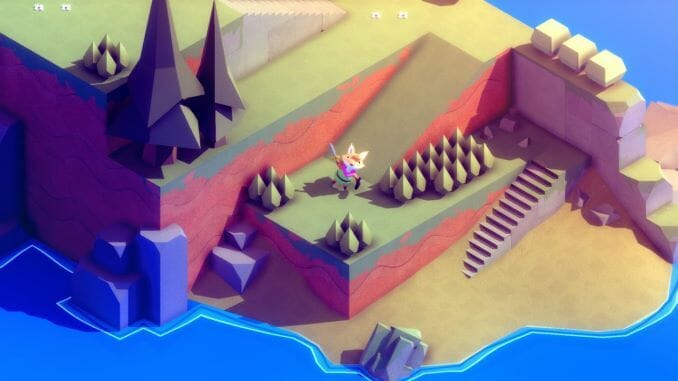
You know what’s just full of respect? Andrew Shouldice’s Tunic. That’s what. This one-man adventure jam doesn’t go easy with its puzzles, having faith that its players will be able to think their way through every tricky scenario presented to them. It also has a deep and overt respect for ‘80s Nintendo games, specifically the original Legend of Zelda; that’s evident not just in the game’s isometric view and general environment, but also in its in-game manual, which isn’t just some mystic, sacred text the adorable fox hero has to seek out, but also a recreation of an NES-era instruction booklet. Tunic sifts through the shared experiences of our gaming past to create something new and unique enough to exist outside the easy allure of nostalgia.—Garrett Martin
7. Vampire Survivors
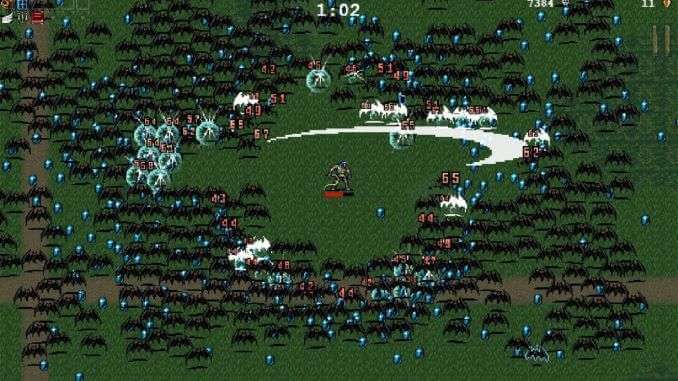
I blame it on the garlic, which obliterated enemies that dared step to me, and made me feel invincible. Of course I wasn’t, and fell mere minutes later, but that taste of what it might mean to utterly dominate the indomitable was more than enough to hook me on Vampire Survivors. Even as I write this blurb, my eyes are darting over to the game’s icon on my desktop, and I can almost hear it calling me. Vampire Survivors is a game that pretty explicitly digs its claws into everyone who plays it, but you have to be willing to embrace the cacophony that follows to be really happy with it. Inside that madness is a wonderful roguelike—an alchemical wonder, if you will—that obscures its depth and secrets with simple graphics and overwhelming odds. It is the easiest game to pick up and the hardest to let go of and, whoops, I’ve begun another run.—Moises Taveras
6. Signalis
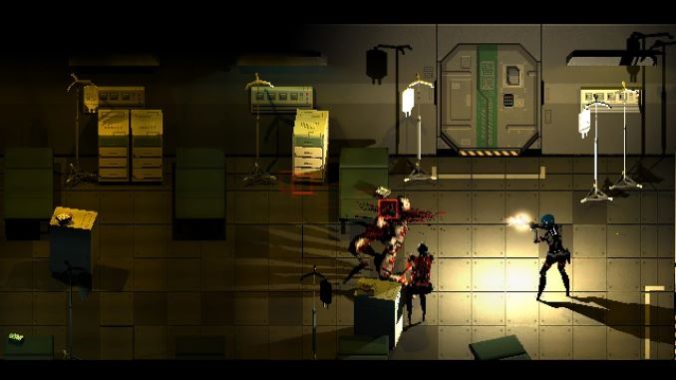
While Signalis fits into a larger trend of games that emulate PSX-era survival horror, its bold aesthetic choices and spellbinding storytelling help push it past its influences to create something singular. Its gameplay successfully channels some of the usual suspects like Resident Evil(2002) and Silent Hill 2 as your forage for keys, avoid Crimson Head-esque reviving zombies, and repeatedly backtrack to solve puzzles. However, its greatest selling point is that it has one of the most compelling videogame narratives of the year, its ruminations on death, identity, and accepting loss conveyed through cryptic symbolism and recurring cycles of pain. By constantly switching settings, artistic styles, and perspectives, it creates a disorienting headspace that emphasizes the confusion of its protagonist, slowly revealing the meaning of its recurring images until the horrible weight of it all comes crashing down. It’s a brainworm of a love story that I can’t get off my mind.—Elijah Gonzalez
5. Elden Ring
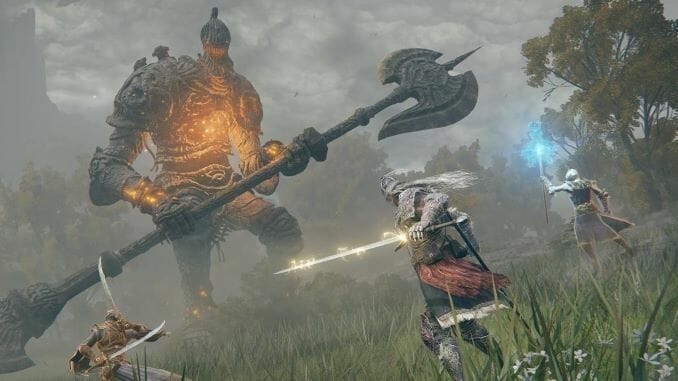
You’d be forgiven for thinking Elden Ring was the only game that came out this year. For a solid three months it seemed to be the only thing anybody talked about, wrote about, or even played. From Software blew its signature RPG formula up into one of the largest open world games in memory, which makes it more accessible than their earlier Souls games, but also even more mysterious and unsettling. Its massive, secret-filled world is clearly influenced by The Legend of Zelda: Breath of the Wild, but with the brutality and subtle approach to storytelling you expect from a Souls game. It might be a little too big, and devolves into a bit of a slog in the late game, but Elden Ring remains an almost unthinkable achievement. I’m dumped over 170 hours into it and still occasionally pop in again to look for any caves or ashes I might’ve overlooked. Elden Ring has a way of setting up camp inside your head and refusing to leave that few games can match.—Garrett Martin
4. Pentiment
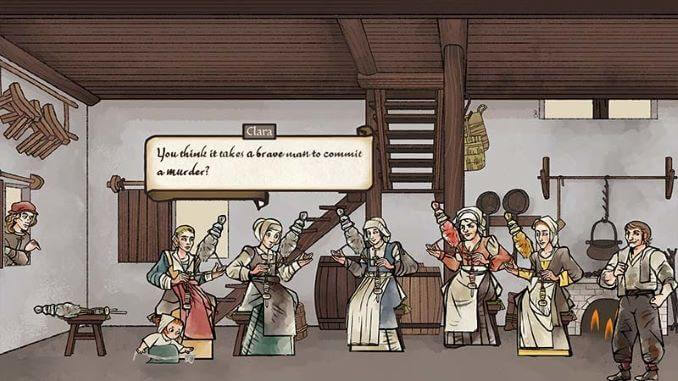
On every level, Pentiment’s illustrations, storytelling choices, and most clearly people are a mirror for the manuscripts that shape its characters’ lives. Whether they read or not, everyone is a repository of history, with their own verbal handwriting, quirks, and opinions on what the town of Tassing’s legacy should be. These human texts open up genuinely insightful questions about authenticity in art and what it will come to mean centuries later, as well as what to do when your history has been lost to you. It is a beautiful portrait of history that doesn’t limit itself from commenting on labor inequity, parental loss, or artistic hopelessness, all things the medieval and early modern art it draws from portrays so vividly. In bringing some of those stories to us today, Pentiment accomplishes the remarkable goal of being both clear-eyed about the medieval period’s faults, and sincere about its masterpieces.—Emily Price
3. Immortality
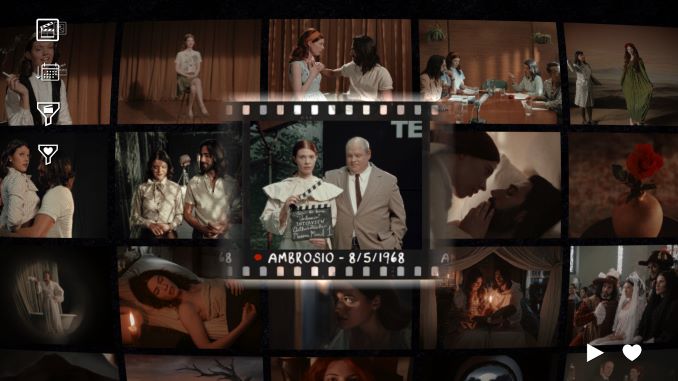
Sam Barlow has created his own micro-genre of games built around mundane video sources. First it was the police interrogation videos of Her Story, and then the video calls of Telling Lies. With Immortality, Barlow and his team go fully cinematic, presenting a mystery about a forgotten actress from the late ‘60s who disappeared after her three starring roles went unreleased. The footage from those lost films resemble different styles of film from two different eras, and the interface is set up like an old Moviola editing desk. You’ll sort through her short film career looking for insight into why she vanished, clicking from one clip to another, including outtakes and talk show appearances. Over time the mystery takes an unsettling turn into horror, but Immortality doesn’t lose site of its themes—voyeurism, the power of sex, the inherent exploitation of movies, the specific exploitation and power dynamics of the director/actor relationship, etc.—in chase of scares.—Garrett Martin
2. Citizen Sleeper

You can think of Citizen Sleeper as a sort of digital board game set in a sci-fi dystopia beset by end-stage capitalism and all the rampant dehumanization that entails. It’s a game about work and death where the only levity comes from the relationships we make with others—yes, the friends we made along the way, but not nearly as banal or obvious as that sounds. It questions what it means to be a person in a system that inherently subjugates personhood to corporations and wealth, and it probably won’t surprise you that the answers it lands on aren’t always the most optimistic or uplifting. Here at Paste Cameron Kunzelman described its “melancholy realism” as part of a trend alongside other story-driven games that are largely hostile to the dominance of capitalism, and it echoes the impossibility of thinking seriously about this medium, this industry, and, well, every aspect of society today without discussing the impersonal economic system that drives it all. It’s a heady RPG that respects your time and intelligence, and one of this year’s must-play games.—Garrett Martin
1. Norco
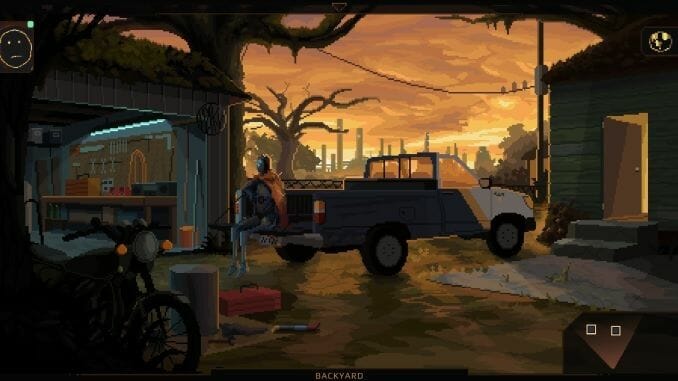
As a Southerner I don’t really trust anybody to write about the South unless they, too, are from here—or at least have lived here long enough to truly understand what makes it great and awful in equal measure, and how the ways in which the South is actually fucked up often diverge from the ways in which outsiders think it’s fucked up. Norco, a smart narrative-driven game about the unique ways in which institutions like religion and big business have exploited the South, its people and its land throughout history, is clearly the work of people who understand this region and its fundamental defects. It’s an unflinching, occasionally surreal glimpse into an only slightly exaggerated version of Louisiana, with its mythical and allegorical flourishes only highlighting the aimless mundanity and real-life degradations of the modern South. If you only play one game from this list, make it Norco.—Garrett Martin